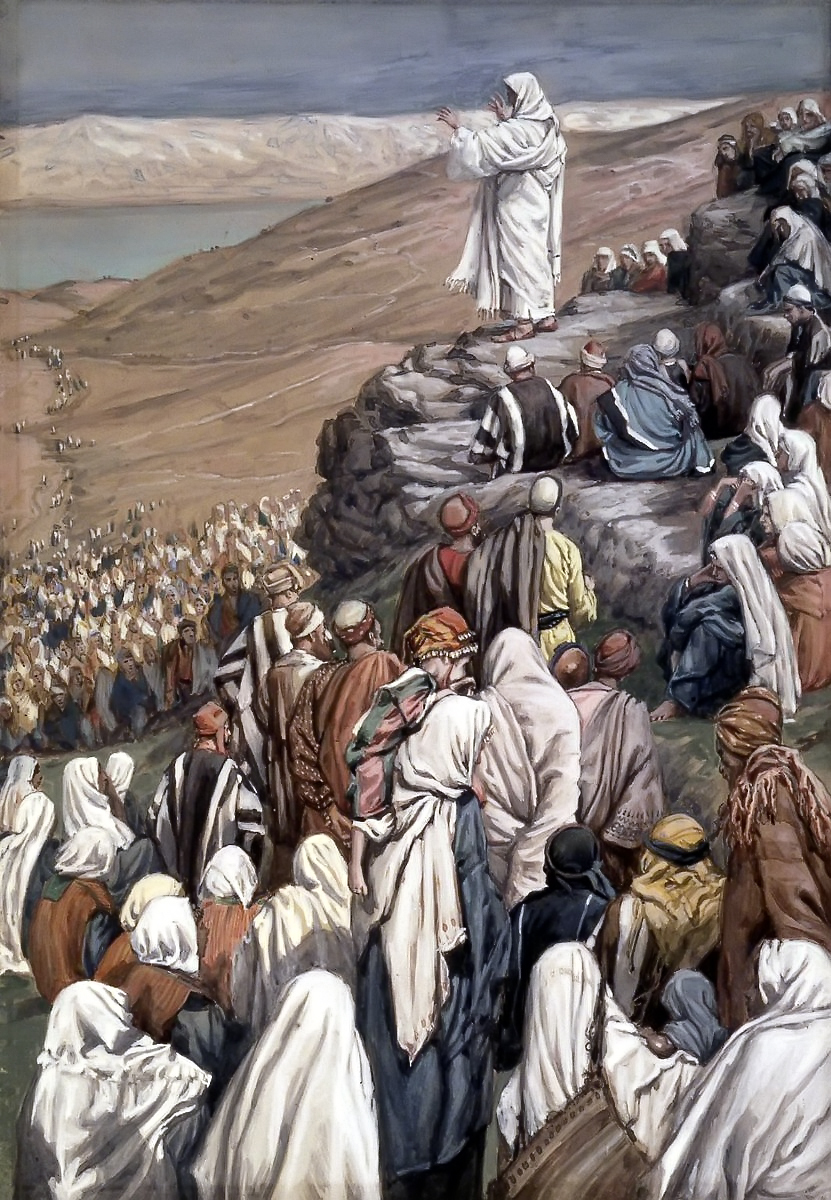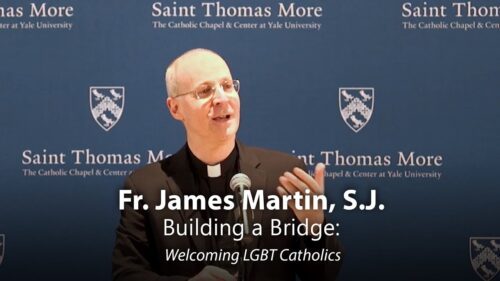This essay first appeared in our weekly Scripture reflection newsletter on February 15, 2025.
Christian theologians often point to a tension in the Christian life between what they call the “already” and the “not yet” quality of God’s reign. The reign of God is here already, because Jesus has already come. And as the Gospels show us, an encounter with Jesus is an encounter with what the reign of God intends: the blind see, the lame walk, the dead are raised. That’s the “already” part.
But the reign of God is also “not yet,” because all we have to do is look around and see that the world is far from perfect. Millions are still poor, sick, homeless, persecuted and suffering in every part of our city, our country and our world. That’s obviously not what God desires, because Jesus opposes these things at every turn during his public ministry.
Into this tension comes what is called in Luke’s Gospel the Sermon on the Plain. (The Sermon on the Mount, in Matthew’s Gospel, is somewhat longer and situated on a mountaintop or a hillside.) And in what are called the Beatitudes, it is clear who are favored in God’s reign, who are blessed and who are, in the original Greek, “happy”: the poor, the hungry, those who mourn and those who are persecuted because of their work on behalf of God. Behold, Jesus says, their rewards will be great in heaven.
We also know who is condemned: the rich, those who are filled, those who laugh—by which Jesus meant those who laugh derisively or mock people—and those who are seen as important. Woe to all of them, says Jesus. As just one example, Jesus says that the rich have received their consolation already, meaning their wealth. This is compared to what awaits the poor: the entire reign of God. Blessed are the poor, for the reign of God is theirs.
The reign of God is also “not yet,” because all we have to do is look around and see that the world is far from perfect.
Now the most obvious question is: When is all this going to happen? Some theologians like to talk about the “divine reversal” that will occur either in the end times or in the afterlife. All you need to do is remember Jesus’s Parable of The Rich Man and Lazarus (Lk 16:19-31). In that parable, a poor man named Lazarus is comforted in the afterlife, while the rich man, who feasted every day while Lazarus sat begging outside his door, is in misery.
But the Beatitudes are more than simply a prediction of what will happen to the rich and the poor, the sated and the suffering, in the afterlife. They are a template for what Jesus expects us to do now, which is to live out the reign of God, to participate in its building up. As the New Testament scholar Gerhard Lohfink points out in his book The Most Important Words of Jesus, it is a call for a kind of revolution.
“The reign of God begins now,” Father Lohfink wrote, “and not only somewhere beyond. And where God reigns, the violent rule of some people over others that casts the weak again and again into poverty, hunger and misery must cease. The poor will be helped now, the hungry will be filled now, the sorrowing will be comforted now.”
The Beatitudes are a template for what Jesus expects us to do now, which is to live out the reign of God, to participate in its building up.
Why is this so? Because Jesus has already come and has already told us what he wants—what he, in fact, commands. So the idea that all we have to do is wait for the poor to be rewarded or, likewise, the rich somehow to be punished, sometime in the far distant future, misses his point. Jesus is not merely talking about the end times. The Beatitudes are an ethos, a practice, a way of life and yes, if you will, a revolution for the now. Because the Gospel is nothing if not revolutionary. And it may seem almost impossible, but it is up to us to help, with God’s grace, to bring it about.
That may seem overwhelming. But if you doubt your ability to participate in this way, just think of all those parables about big things starting from small beginnings, like the mustard seed, which starts as the tiniest of seeds and grows into a huge bush; or the leaven, of which just a tiny amount is sufficient to make the dough rise. God asks us to be both seeds and leaven. It starts with God’s call to you and it starts here. And now. That call is already.
There is a spot in the Holy Land called the Mount of Beatitudes, where Matthew’s Gospel is said to have taken place. Now why did Luke’s Gospel talk about the Sermon on the Plain? Quite simply, because Jesus probably preached his Beatitudes in various places, on mountains and on plains.
Jesus never meant for us to sit back and watch as the poor were treated like dirt. Jesus has already come, and “not yet” is not enough for Jesus.
In any event, during Masses at the holy sites in the Holy Land, you always use what are called the Readings of the Place, which are tailored to the place. In other words, when you’re at the Mount of Beatitudes, the reading is always, every day, the Beatitudes. But there is something else wonderful about these sites. The Prayers at Mass are also tailored to the site and they use an incredible word. They don’t say, for example, “Lord, when you went up a mountain to preach the Beatitudes…” The prayer says, “Lord, when you went up this mountain, here, to preach the Beatitudes…” Here is the operative word.
It’s a reminder not only that these things happened in a real time and place, but something else. That “here,” for all of us, is already here. The time is now and the place is now. Jesus never meant for us to sit back and watch as the poor were treated like dirt. Jesus has already come, and “not yet” is not enough for Jesus.




